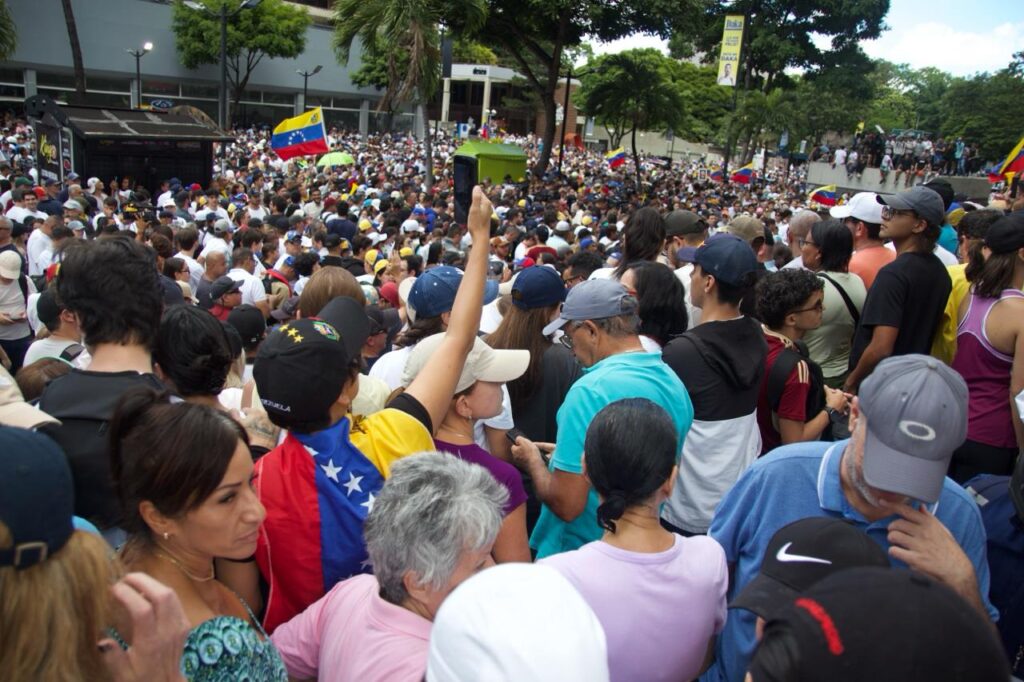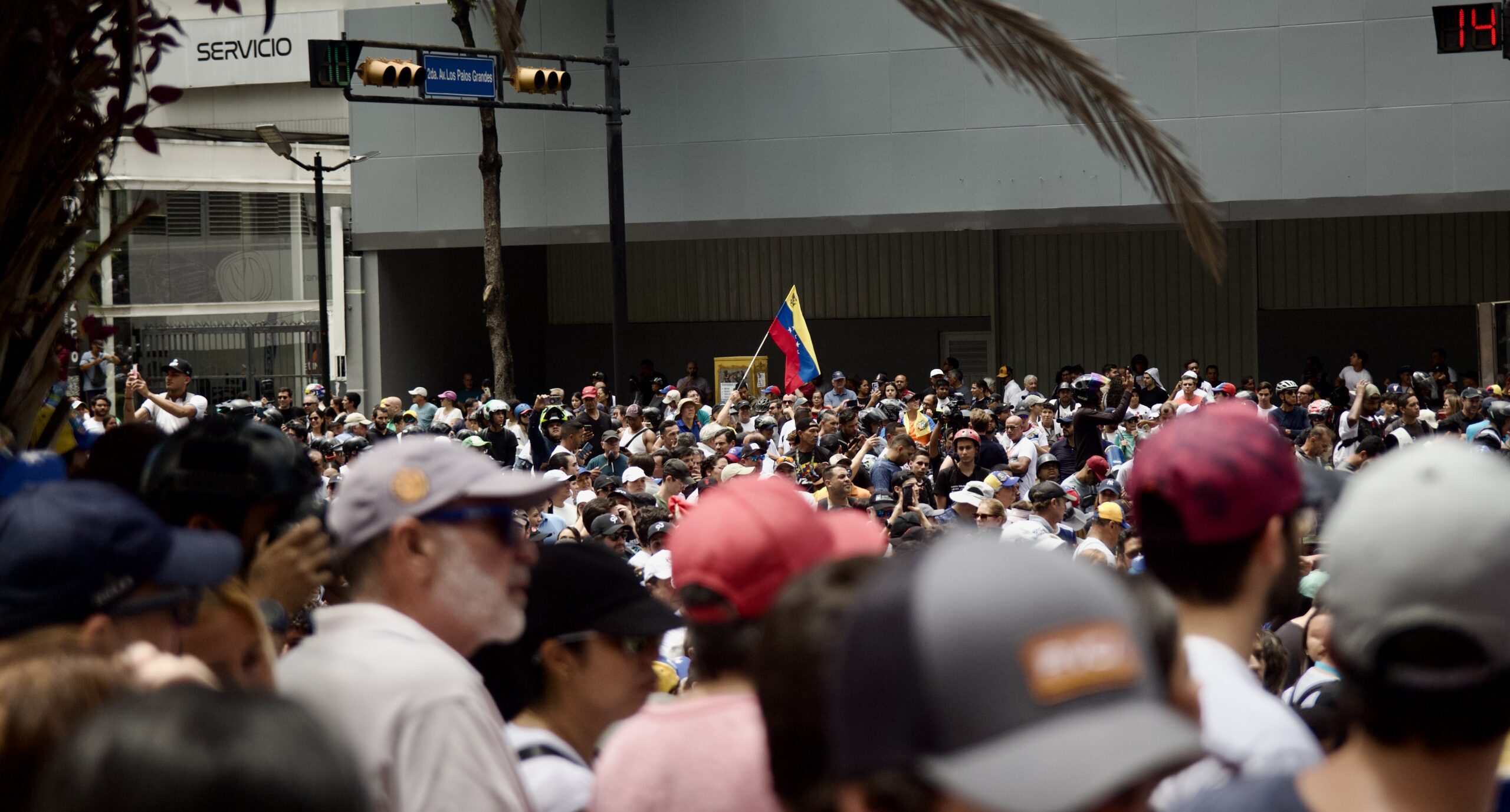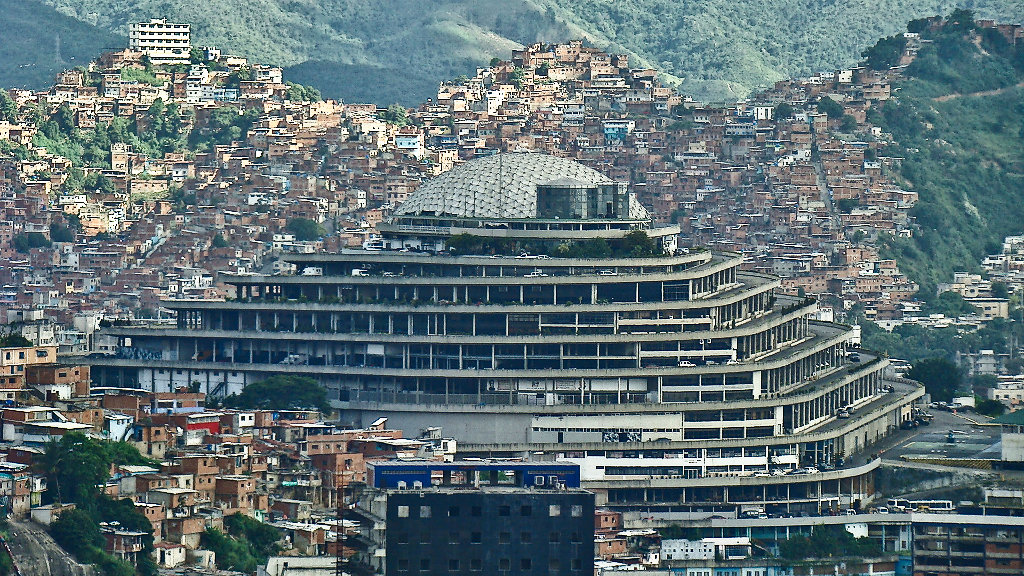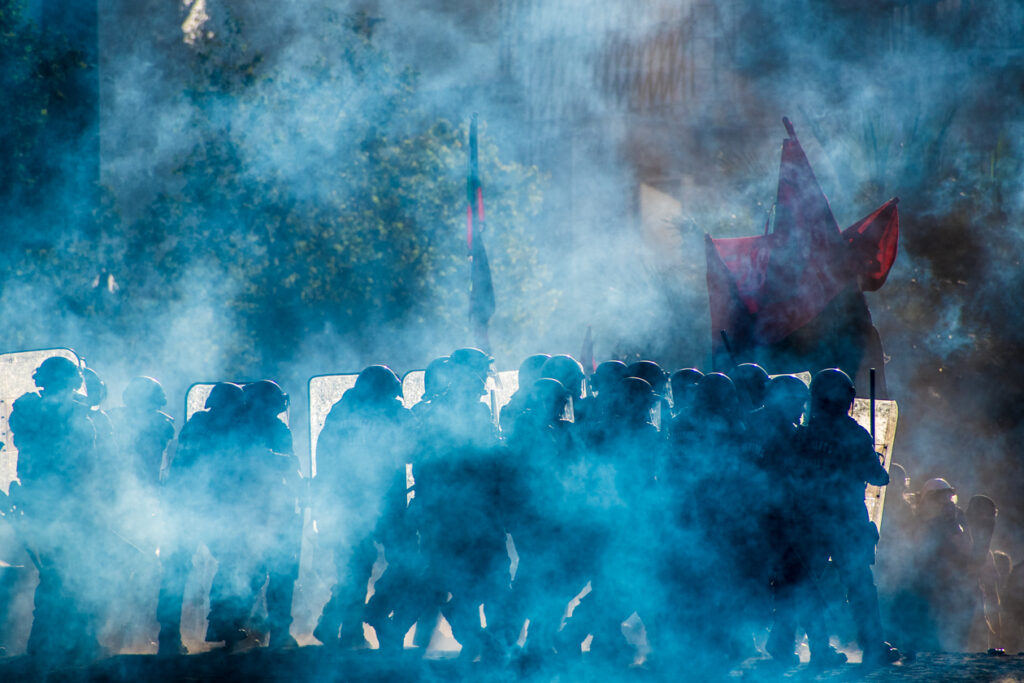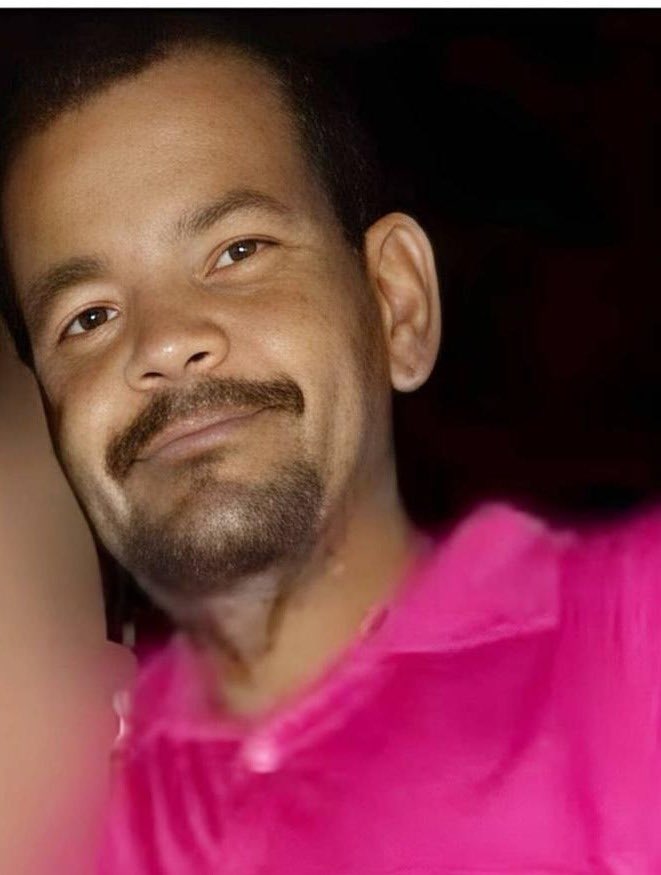Caracas, Venezuela – Protests against election results in Venezuela spread on Tuesday, with President Nicolás Maduro announcing plans for the security forces to “protect the streets.” As many as 11 people have died and over 100 more have been arrested by the authoritarian regime.
Spontaneous, decentralized protests gained steam across Venezuela on Tuesday following Sunday’s election, which is being disputed by the opposition and international observers. As security forces mobilized, the atmosphere on Wednesday was more subdued.
Laboratorio de Paz (Peace Laboratory), a pro-democracy think tank in Caracas, geolocalized over 210 protests in the capital and major cities like Maracaibo, Valencia and Maturin, as well as small towns and municipalities throughout the country.
The Observatorio Venezolano de Conflictividad Social (Venezuelan Observatory of Social Conflict) reported over 300 protests across 20 states, with at least 115 of them being repressed by colectivos — armed paramilitary groups aligned with the government.
Latin America Reports spoke to Rony Vivas, a photographer and videographer who was at protests in the neighborhoods of Los Dos Caminos and Santa Fe in Caracas. He said that he observed people protesting peacefully, and said the feeling was almost “euphoric.”
As the day went on, according to Vivas, the protests were repressed by security forces. At around 5:30PM the National Guard began launching tear gas and pellets at protestors on the Francisco Fajardo highway, close to the upscale Las Mercedes neighborhood.
A video taken by journalist Helena Carpio at the same protest and posted to Instagram shows smoke from tear gas in the distance as protesters on motorcycles and on foot flee from security forces.

Opposition called on Venezuelans to “peacefully defend” votes
Opposition leaders Maria Corina Machado and Edmundo González Urrutia have called on Venezuelans to gather peacefully in “civilian assemblies,” inviting them to bring along children and families as well.
In Caracas, an opposition-led demonstration was held in front of the United Nations (UN) offices on Francisco de Miranda Avenue in the east of the city. Other opposition leaders and organizers held “civilian assemblies” in the states of Merida and Táchira.
Gabriela Barroeta, a 21-year-old Venezuelan student who was at the demonstration in Caracas on Tuesday, told Latin America Reports that she traveled to the city from Germany to vote in Sunday’s election.
She said it’s “important that the six million votes [that the opposition claims González Urrutia won] are shown,” and added that it’s critical “they know we exist, that we were there.”
The opposition, as well as international electoral observers including The Carter Center, have denounced Maduro’s government for not holding fair elections and not releasing voting tabulations to the opposition’s civilian electoral observers, as was agreed upon before elections.
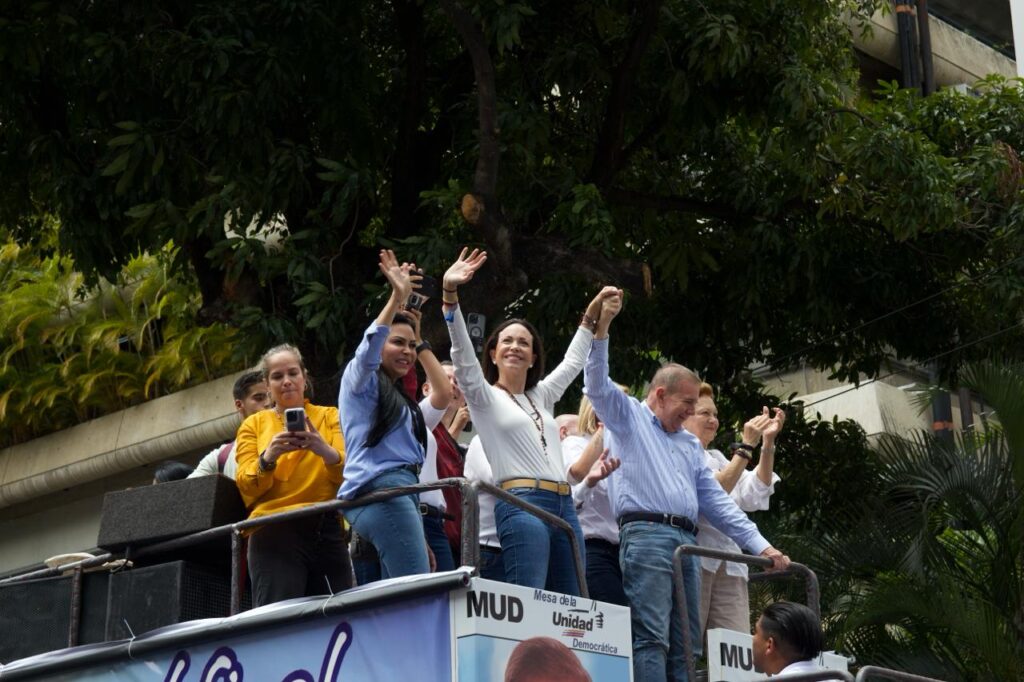
Like many Venezuelans, demonstrations of this sort remind Barroeta of “first hand experiences” in previous cycles of protest against Maduro’s government, like those in 2014 and 2017. “Close to my school growing up, there was tear gas several times. I still remember the stifling feeling,” she said. At Tuesday’s protests, Barroeta admitted she was “a little tense and anxious,” but at the same time she felt an “overflowing excitement because this time, it feels very different.”
Machado and González Urrutia addressed the protesters in front of the UN offices at around 1:20PM on Tuesday. González Urrutia, the opposition’s official candidate, addressed the armed forces saying, “There is no reason to repress the people of Venezuela.”
After the rally, supporters walked east from the UN building toward Chacaito, where they were reportedly met by the Bolivarian National Police (PNB) on motorcycles and in armored vehicles. Similar police presence at protests was reported in the states of Amazonas, Carabobo, Vargas and Portuguesa, and political figures have also reportedly been detained by government forces.
A video allegedly shows Freddy Superlano, the national coordinator of the opposition party Voluntad Popular, abducted by masked men and placed into an SUV on Tuesday morning in Sebucan, Caracas. Later that day, Ricardo Estévez, a member of Machado’s Vente Venezuela opposition movement, was detained in a similar fashion.
Maduro deploys “special plan” to “consolidate peace”
During the opposition’s rally on Tuesday, Jorge Rodríguez, a Maduro ally and president of the National Assembly, asked for the imprisonment of Machado and Gonzalez Urrutia, whom he accused of being responsible for the “fascist conspiracy they are trying to impose on Venezuela.”
In the first meeting of the Council of the State and Council of the Defense of the Nation, Maduro stated that González Urrutia was “responsible for the deceased and the injured” in protests.
Maduro announced he is “deploying a special plan for the National Bolivarian Armed Forces (FANB) and the police forces to develop patrols and protection of the streets and communities against these violent ‘comanditos.’”
Maduro supporters gathered outside of the Miraflores presidential palace Tuesday. Addressing his supporters, Maduro ordered the military patrols to not stop until “peace is consolidated,” calling for “people to mobilize in the streets every day.”
Human Rights Watch on Tuesday called for the “immediate release of arbitrarily detained individuals, respect for due process guarantees, and the non-criminalization of opposition leaders and citizens exercising their right to peaceful protest.”
